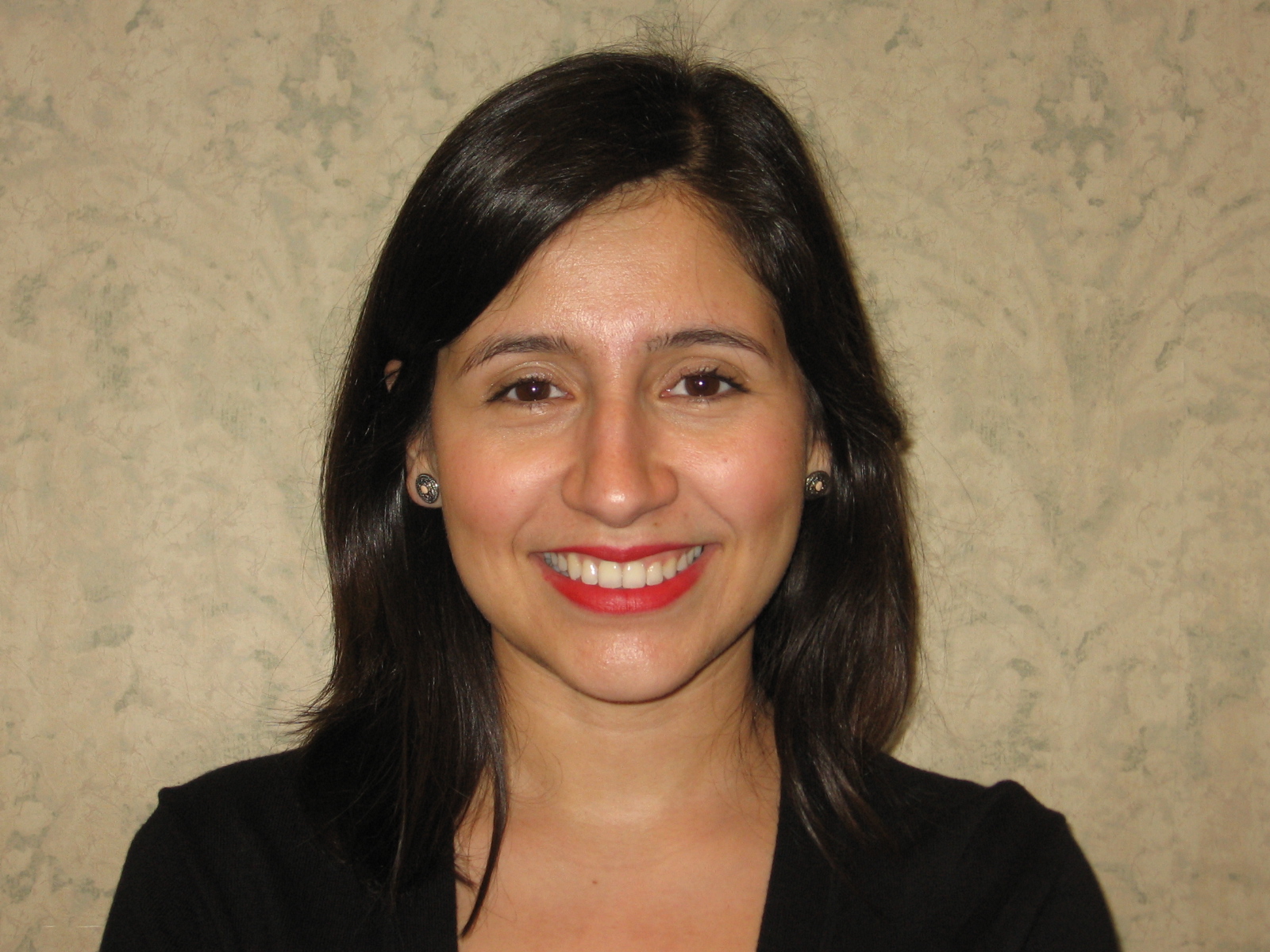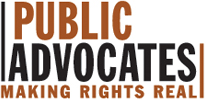by Kristen Pavón
Adriana Rodriguez is the EJW Fellow at Texas RioGrande Legal Aid in Laredo, Texas. She is a 2011 graduate of the University of Texas School of Law.
I met Ms. Rodri guez at NALP’s Annual Education Conference last month. She was the speaker at our Public Service Section Luncheon. She gave us great insights into Texas’s legal aid situation and reinvigorated our public interest passion.
guez at NALP’s Annual Education Conference last month. She was the speaker at our Public Service Section Luncheon. She gave us great insights into Texas’s legal aid situation and reinvigorated our public interest passion.
She is just one of the many young attorneys doing good work — learn about her and her work here, and get inspired!
Tell me a bit about yourself.
I grew up in Laredo, Texas along the U.S.-Mexico border. My parents instilled a strong sense of community service in my brother and me. I was talkative and very social as a child, and I continue to be as an adult.
When and why did you decide to go to law school?
I decided I wanted to go to law school in high school. I, like many, read “To Kill A Mockingbird” and felt inspired and deeply stirred by the character of Atticus Finch. The life of a lawyer seemed very appealing to me. As a teenager, I liked the idea of dramatic courtroom moments to help someone find justice, but now, as an actual lawyer, I realize there’s a little more to it.
Did you know you wanted to go into public interest law before starting law school?
I was pretty certain I wanted to do some kind of service oriented lawyering early on. My pre-law school years as a school teacher in Houston really cemented my commitment to low income communities. It seemed my students and their families had so many troubles, some of which seemed to have legal remedies . As a first year law student, I was anxious to learn more about the access to justice issues that kept so many away from the legal help they needed.
What is the legal aid/access to justice situation like in Texas?
Texas is fortunate to have three legal aid service providers across the state. Unfortunately, there are about 11,000 eligible clients for every 1 legal aid attorney. Accessing legal services is often much more difficult for Texans who live in rural communities. The Texas Supreme Court and the Texas Access to Justice Commission advocate zealously for legal aid funds in Texas despite a struggling economy. Still, there is much work to be done to improve access to legal services to all Texans.
Can you describe your EJW project at TEXAS RIOGRANDE LEGAL AID?
My Equal Justice Works Fellowship Project sets out to support survivors of domestic violence and help them achieve some kind of peace at home. The Project, partnered with the local women’s shelter, assists survivors in attaining protective orders and resolving divorce and custody disputes. The Project also helps undocumented survivors apply for special immigration status through VAWA and U-Visas self-petitions. Additionally, the Project sets out to bring more pro bono resource s to the Laredo area by recruiting attorneys from Dallas, Austin, and San Antonio to take these special immigration cases.
How and why did you decide on this particular project?
I remain concerned about the home-lives of my students and the many like them across the country. After learning more about domestic violence and its long-term effects on families and communities, I wanted to develop a project around the issue. During my time as a student in Austin, I learned a great deal about the services available to survivors and their families in Travis County. I wanted to replicate some of these great ideas back in Laredo, where I knew low-income survivors did no t have the same access to services, especially legal representation.
You mentioned during the public service luncheon that Laredo is not a favorite destination for new attorneys to start their careers. However, you decided to work there anyway. Describe how you came to that decision.
I decided to return to Laredo with this two-year project because I wanted to be a part of the network of support available to survivors in the Laredo area. I was hopeful that I could increase access to legal services for women who were indigent and unable to access our court systems otherwise. There are plenty of young attorneys willing to do this difficult work in bigger cities. I figured I should take my energy back home.
What do you plan to do after your fellowship?
I would like to continue to work with survivors of domestic violence at Texas RioGrande Legal Aid.
What is one thing you know now that you wish you had known before and/or during law school?
Most law schools don’t teach students how to build rapport with clients. Some students learn how to do this when they work in law school clinics or while they intern somewhere, but plenty don’t. As a young attorney, I’ve learned that building a positive rapport with clients is tremendously important, especially in the domestic violence context.
What advice would you give pre-law or current law students about law school, the job market, and/or public interest work?
I think anyone who aspires to be a public interest lawyer needs to seek opportunities to gain experience and real perspective about the issues affecting many low income communities. Reading or hearing about the issues that plague people in our communities is simply not enough. Volunteer! Intern! Just get out there.
Learn more about TEXAS RIOGRANDE LEGAL AID here.
 The internship will entail in-depth research and analysis of novel legal issues, as well as preparation of legal memoranda for the immigration judges. Interns will have an opportunity to draft several decisions that will be taken under advisement by an immigration judge. Interns can expect to complete assignments that may later be used as writing samples. In addition, interns will be able to observe a variety of matters brought before the court. The intern will work under the supervision of the court’s attorney advisor but will also have substantial interaction with the individual immigration judges.
The internship will entail in-depth research and analysis of novel legal issues, as well as preparation of legal memoranda for the immigration judges. Interns will have an opportunity to draft several decisions that will be taken under advisement by an immigration judge. Interns can expect to complete assignments that may later be used as writing samples. In addition, interns will be able to observe a variety of matters brought before the court. The intern will work under the supervision of the court’s attorney advisor but will also have substantial interaction with the individual immigration judges.




